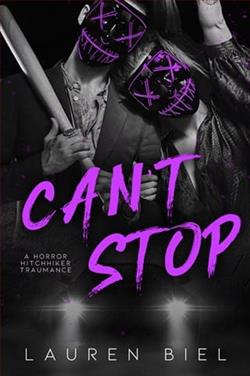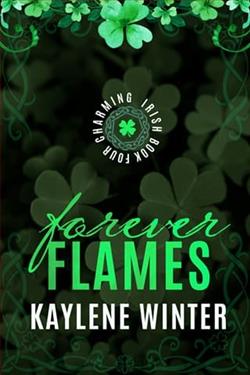Page 141 of It Happened on the Lake
“Already started.”
“Good.” Rand didn’t know if it was a good idea or not, but time would tell. “Want a beer?” He held up his bottle of Sam Adams.
“Yeah, sure. Why the hell not?” Levi gave a quick nod, and for a second Rand imagined offering a bottle to Chase. He wondered if they’d still be friends. If Chase would have settled down here, in Almsville. If he would have married Harper—even had a kid or two. Then would Tom Hunt still be alive? Would Cynthia have avoided her descent into madness?
Who knew?
“Have a seat,” Rand said. As he stepped into the kitchen, the oven beeped and he slid the pizza into the oven, then set the timer all the while wondering what was going on with Levi?
He returned with the beer and saw that Levi hadn’t sat down. Instead, he was standing in front of the fire staring off into space. He accepted the bottle from Rand and clinked the neck of his beer with that of Rand’s, then took a long pull.
“Thanks.”
“You want to take off your jacket?” Rand asked.
“Nah. I can’t stay.” He retrieved an envelope from his pocket and handed it to Rand. “Take a look at this.”
“What is it?”
“A note from my mother. She left it with another resident at Serenity Acres. For me. You remember Old Man—uh, Edward—Sievers.”
“My neighbor? Sure.”
Levi explained how he’d run into Sievers when he’d gone to look through his mother’s things at the care facility. “So he gave it to me. Look inside.”
Rand slipped a bit of embossed stationery from its matching envelope and read the simple message.
They killed him.
They killed Chase.
Make him pay.
“Wait a second.Theykilled Chase, but makehimpay? So is it one person, or several?”
“I don’t know,” Levi admitted. “It could have been a mistake. In the last few years, Mom wasn’t always . . . you know. Not always there. So maybe she wasn’t thinking straight.”
Rand didn’t think so. The note was too perfectly written, too carefully put together. “Did Sievers read this?”
“He said no. The note was sealed. And there’s more. This was with it.” He reached into the pocket of his jacket and came up with a piece of paper,
“What is this?” Rand asked, perusing the document as the smell of warming bread dough emanated from the kitchen. “Bank statement.”
“Right, and check the date. All of the withdrawals, cash, on a monthly basis, until the month Dad died. By then the account was drained.”
“Just your dad on it,” Rand said, eyeing the figures. “He was making payments.”
“In cash.”
“No record,” Rand said, starting to get a bad feeling. “You don’t know of anything he was buying on time?”
“I don’t think that’s it. I think . . .” Levi paused and stared into the fire, where the flames were crackling. “I think he might’ve been paying someone off.”
“For—?”
“That’s the part I don’t understand. I’ve been handling Mom’s accounts, paying her bills, collecting Dad’s retirement and social security for her, and there was nothing outstanding. The house is paid off, and I sold her car. The boat—it was bought years ago.” He took a long swallow from his beer. “It could be some kind of personal note, I suppose, for something I don’t know about.”
“Gambling debt?”















